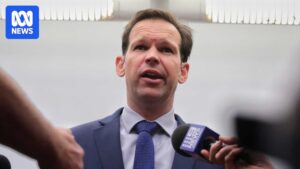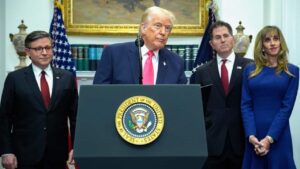
Questions surrounding the disgraced financier Jeffrey Epstein have haunted prominent figures since his death in a Manhattan jail cell in 2019. Recently, these questions have crossed the Atlantic, embroiling the UK’s ambassador to Washington, Peter Mandelson, in a scandal that has further destabilized Keir Starmer’s already embattled British government.
The revelations have not only cost Lord Mandelson his prestigious diplomatic post but have also intensified scrutiny on the Labour government. The saga’s latest chapter unfolds amid a backdrop of political turmoil and international intrigue.
Who is Lord Mandelson?
Until recently, Lord Mandelson served as the United Kingdom’s ambassador to the United States, a role he assumed in February. His appointment was intended to strengthen ties with US President Donald Trump. Prior to this, Mandelson was a key figure in British politics, known for his role as a minister in previous Labour governments and as a “spin doctor” for the party.
He is often credited as the architect of former Prime Minister Tony Blair’s landslide election victory in 1997, which ended over two decades of Conservative Party dominance. However, his illustrious career has now been overshadowed by his connections to Epstein.
Unveiling the Epstein Connection
While it was public knowledge that Lord Mandelson knew Epstein, recent disclosures have revealed the depth of their relationship. A release by the US House Oversight Committee included a birthday note allegedly written by Donald Trump to Epstein, and more shockingly, it quoted Mandelson referring to Epstein as his “best pal.”
The British Telegraph further reported that Epstein had facilitated the £1 billion sale of a UK taxpayer-owned banking business while Mandelson was business secretary in 2010. This transaction occurred after Epstein’s 2008 conviction for child sex offenses, raising questions about Mandelson’s judgment.
Adding to the controversy, emails from 2008 between Mandelson and Epstein suggested that the ambassador harbored doubts about Epstein’s conviction. “I think the world of you and I feel hopeless and furious about what has happened,” Mandelson wrote in one email. “Your friends stay with you and love you,” he added, as reported by British media.
Political Fallout and Government Response
In response to the unfolding scandal, Mandelson publicly expressed regret for being deceived by Epstein. However, the damage was done. The Conservative Party seized the opportunity to challenge Prime Minister Keir Starmer’s leadership, with the party leader Kemi Badenoch questioning Starmer’s confidence in Mandelson during a parliamentary session.
Initially, Starmer defended Mandelson, but the release of further incriminating emails forced a swift reversal. A spokesperson for Starmer stated that the prime minister took “prompt and decisive action” after reviewing the new information, finding some of the emails “reprehensible.”
Implications for Starmer’s Government
The timing of this scandal is particularly challenging for Starmer’s government, which is already grappling with declining popularity. The right-wing populist Reform UK party has been gaining ground in the polls, adding pressure to the Labour government.
Compounding the situation, Starmer’s deputy, Angela Rayner, recently resigned over a separate issue involving unpaid stamp duty. The fallout from Mandelson’s resignation is especially sensitive, given that President Trump, who is also embroiled in controversies related to Epstein, is scheduled to visit London next week.
Questions have also arisen about what Starmer and his team knew about Mandelson’s relationship with Epstein before his appointment. Reports suggest that security services may have issued warnings that were ignored, further complicating the political landscape.
As the British government navigates this crisis, the ramifications of the Epstein saga continue to reverberate across the political spectrum, raising questions about accountability and the integrity of public officials.






